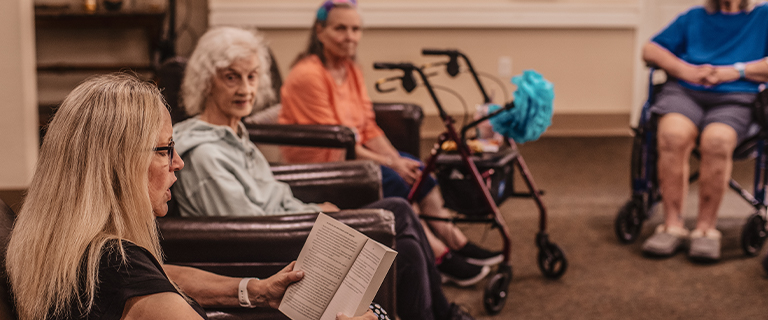Taxes for Senior Homeowners
Finance planning is important at any age, but senior citizens have unique considerations. Managing property finances and taxes can burden seniors and their families financially. Whether seniors are downsizing into an independent community, assisted living, or other lifestyle options, having a plan can make your choices more comfortable.
So what options are available? Can senior citizens defer their property taxes in Texas?
Who Can Qualify for Deferred Property Taxes?
Senior citizens can defer property taxes in Texas. Section 33.06 of the Texas Tax Code allows deferred taxes on residences of the elderly, disabled, or disabled veterans. Deferred taxes also includes stopping the collection of a delinquent tax or a tax lien foreclosure.
Individuals qualify for section 33.06 if:
- They are at least 65 years old
- They are disabled as defined in Section 11.13(m)
- They are a disabled veteran or surviving spouse (Section 11.22)
- They own and occupy the residence
The rules about resident occupancy can vary, ranging from a minimum of one year to 10 years. Seniors should verify the minimum requirements for their district.
To obtain a deferral, individuals must file an affidavit (a written statement) stating the details of why they qualify for a deferral under section 33.06. For example, seniors would say they are eligible due to their age. Homeowners must submit the affidavit to the chief appraiser in the appraisal district where the property is located.
The tax deferral process is a free service. However, seniors and their caregivers should be cautious about scammers who may imply additional fees or the payment of delinquent taxes is necessary. Go to your tax office or contact the Comptroller of Public Accounts and your county tax assessor/collector’s office for information.
How Does a Tax Deferral Work for Seniors?
A tax deferral is a temporary pause, not a complete cancellation. Similar to a loan, the process adds interest to your balance. The tax deferral also has an end date, when the individual (or their heirs) will be expected to provide payments.
Seniors can apply for property tax deferral in Texas at age 65. The deferral will last 181 days after:
- The homeowner’s death, or
- The sale of the property.
Notably, the tax deferral will continue if the homeowner is survived by a spouse when:
- The surviving spouse was at least 55 years old; and
- The property was the residence of the surviving spouse.
After 181 days, the accrued taxes and applied interest rate are due. The amount owed may be paid from the deceased’s estate or by selling the property.
What to Consider
Deferring property taxes can help seniors stay in their homes longer and focus on other financial goals. However, there are things to consider before signing and sending an affidavit.
Interest rates for property tax deferrals range throughout the US. For example, Minnesota offers a variable rate with of maximum of 5%, Oregon at 6%, California at 7%, and Texas at 8%. That makes Texas one of the more expensive rates for tax deferral.
Seniors may want to think about how their deferrals will impact their heirs. For example, if loved ones or children wish to retain the property long-term, letting them know can allow them to plan for repayment. On the other hand, being unprepared for the interest might mean being forced to sell the home.
Seniors should also look into all alternatives available. Some plans are best for keeping the home, while others are better for financial relief. Discussing a tax deferral with loved ones or financial advisors can help seniors decide what is best for their goals.

Alternatives for Property Ownership
There are countless options for financial and property planning. Working with a financial advisor can help introduce seniors and their families to various alternatives and make the most out of their property.
Deferring property taxes can pause the financial burden, but there are 2 other popular options seniors may consider.
Downsizing
When you have too much space or a property you’re not using, selling it can relieve you of the financial burden. Downsizing is an excellent option for seniors moving into a smaller home or a senior living community.
The benefits of downsizing include:
- Increased cash flow
- Less maintenance
- Lower utility bills
With less space, seniors spend less—but it also means limiting how much you can hold onto, from precious knickknacks to large furniture. Depending on the new living situation, it may require adjusting, especially if the space is significantly smaller.
Reverse Mortgage
Say you want to keep your home but still need more capital for expenses or investments. A reverse mortgage allows you to keep your home and use the property value to qualify for a loan. Seniors 62 or older can receive funds as a lump sum, fixed monthly payment, or line of credit.
Unlike a traditional mortgage, the homeowner is not required to make regular payments. Instead, the entire loan amount is due when the homeowner dies or chooses to sell the property. Of course, as with any loan, additional fees, including interest, are added to the balance.
The main benefit of a reverse mortgage is that seniors can access their home’s cash value without selling it.
Moving into a Community
When the time is right, downsizing or moving into a senior living community can allow seniors to live comfortably without the stress of maintaining a property. So if you’re considering a place change, we hope you’ll call Parsons House Preston Hollow home.We welcome seniors and their loved ones to schedule a tour to see how we celebrate our residents with enriching experiences. Contact us today!



